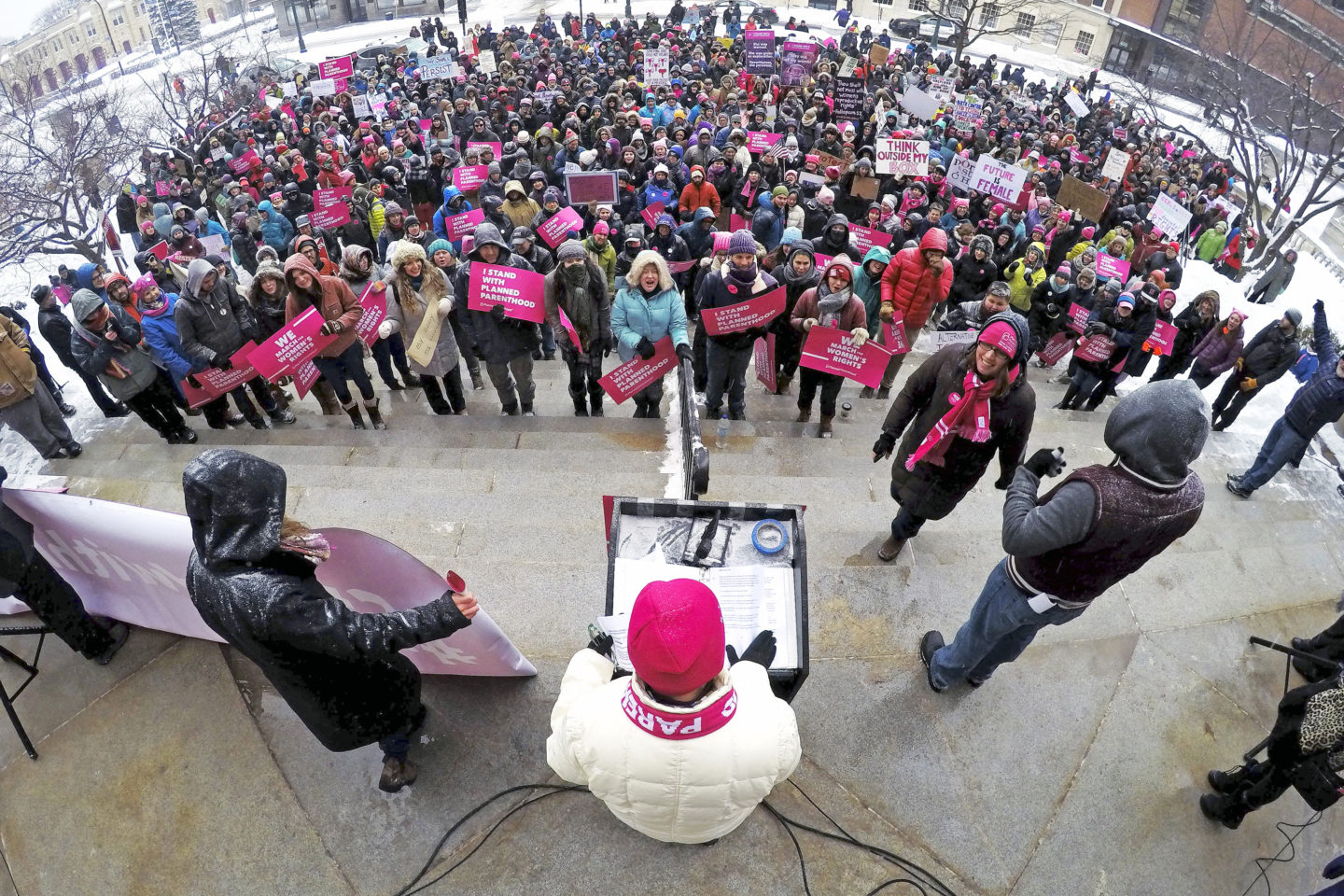I die a little bit inside whenever I see something like “Women’s reproductive health is under attack #IStandWithPP” on my Twitter feed.
I cringe when people chant in protests about “a woman’s right to choose!” I feel completely invisible when gynos and contraceptives are framed as being important women’s health priorities only.
This isn’t because I don’t support birth control, abortion and gyno visits covered by insurance. It’s because the language surrounding reproductive health activism is completely reductive — that is, all the exclusively feminine stuff like “women,” “vagina,” “she,” and “her.”
The thing is, the future of Planned Parenthood and reproductive health policies in the U.S. don’t just affect women exclusively. Men, non-binary and trans people need reproductive health access just as much as their cisgender counterparts.
While cis women may make up the majority of clients at Planned Parenthood, and the nation as a whole, it’s counterproductive to exclude trans folks from these conversations time and time again. Trans folks who also get their period and need doctors and sometimes need abortions.
For me, as a trans man with a vagina, reproductive healthcare is essential. I have abnormal periods that I’ve needed constant gyno care and birth control for since I was 12. I often develop cysts on my ovaries, which require medical attention. Now, I’m looking into getting a hysterectomy (for pain and gender-affirming purposes), and will be setting up an appointment at my local Planned Parenthood this month to explore taking testosterone.
I don’t have a lot of money, so NYC PP’s new services for transgender clients interested in transitioning is so exciting to me. Not only because I can afford it, but because Planned Parenthood seems like a less intimidating space to start this journey in than a specialist’s office hundreds of miles away from me. Transitioning is a scary journey to embark on, but services like this from reproductive organizations like Planned Parenthood make all the difference.
While helpful in some areas, there are many other areas where reproductive healthcare seriously needs revising when it comes to gender-expansive clients. For example, there are lots of hoops to jump through in order to schedule a hysterectomy (since being trans isn’t a good enough excuse in most cases). Doctors in the reproductive health field, like gynecologists, repeatedly misgender patients like me despite my corrections. They ask me questions about my sex life, assuming I have straight/cisgender-typical sex and frown when I tell them I’ve never had vaginal sex. With their behavior, many doctors make it very clear that these spaces are “cis women only.”
It’s funny how so much of the focus for some feminist activists I know stays on “women’s reproductive health,” when there is a whole slew of things that urgently need to change regarding trans and intersex reproductive health. Sure, advocate for women’s right to choose, more power to you! But then also advocate for the rights of intersex babies and children, who are so often forced into genital reconstructive surgeries that rob them of their right to choose what they want later in life. Question doctors that are literally committing violence against children’s reproductive organs, and essentially playing god by trying to choose intersex babies’ gender for them.
Cis women and women in general are not the only people with reproductive organs. I feel like I’ve been saying this non-stop lately. Abortion and birth control and safe medical procedures aren’t just important for women, they’re important for all people (children included). I understand the polarizing is in reaction to the need for unity under a president who has openly expressed hatred towards women, but let’s remember who the latest executive order, the one about bathrooms, targeted. Let’s try and remember that as we go forward with our feminist activism that people of all gender identities are oppressed and affected by our reproductive health systems being compromised. An attack on reproductive health is an attack on us all.




comments